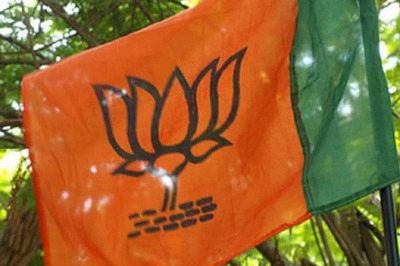
views
CHENNAI: Pramod Vittal, a 31-year-old software professional at an MNC, has been facing a torrid time going through his bank statements over the past several months. He took a home loan on a floating rate scheme for `45 lakh soon after he got married in 2008, hoping that his spouse’s income would help them pay the Equated Monthly Installments (EMI) without compromising on their standard of living. However, things have dramatically changed with the constant revision of interest rates by the Reserve Bank of India (RBI) in the last two years.“The interest rate was around eight per cent when I started repaying the loans. Now, I think it is about 12 per cent. I am paying almost `8,000 more than when I started, forcing us to keep our family plans on hold,” he says.For many among the salaried class in the city, Thursday was clearly a day of double-whammy, with the oil companies increasing petrol prices by `3.14 and RBI increasing the interest rates by 25 basis points yet again, the twelfth time in the past 18 months.S Vijay, a chartered accountant and a resident of Mylapore, who invested in a flat at Thoraipakkam a couple of years ago, says that while an increase in EMI alone could be manageable, the escalating prices of fuel and essential commodities were pushing his family budget to the limits.“The corresponding increase in my salary could have offset the EMI hike if prices of essential commodities were stable. However, the government is administering a slow torture by increasing the prices of everything we buy,” he says.Not just for those who have bought homes on loan, the increasing interest rates also affect those in rented houses as owners, who have bought the houses on loan and have subsequently rented them out, have started demanding higher monthly rents that they use to pay the EMI.R Bala, a house broker who helps people find apartments for rent in Chindadripet and Triplicane areas, says he has been seeing an increase in rent rates quoted by flat owners in the past several months. “Many such owners these days are also trying to bargain a year-on-year rent increase of 15 to 20 per cent rather than the usual 10 per cent in the rent agreements,” he says.Bankers, on the other hand, say that many customers are now choosing to close their loan account by paying the remaining amount at one go to escape high interest rates. An officer of the rank of Vice President at HSBC says: “Not many banks encourage fixed rates scheme these days. Hence, most have taken loan on floating rates and we see many people requesting early closure.”However, such increasing interest rates of loans could make customers put a hold on buying high value assets such as land and home, thereby increasing their spending on consumer goods. Says a Regional Sales Manager of an Indian MNC: “When people stop buying high value assets, the trend usually moves towards buying consumer goods. We are expecting such a trend very soon and this festive season could be an indicator on consumer preferences.”




















Comments
0 comment